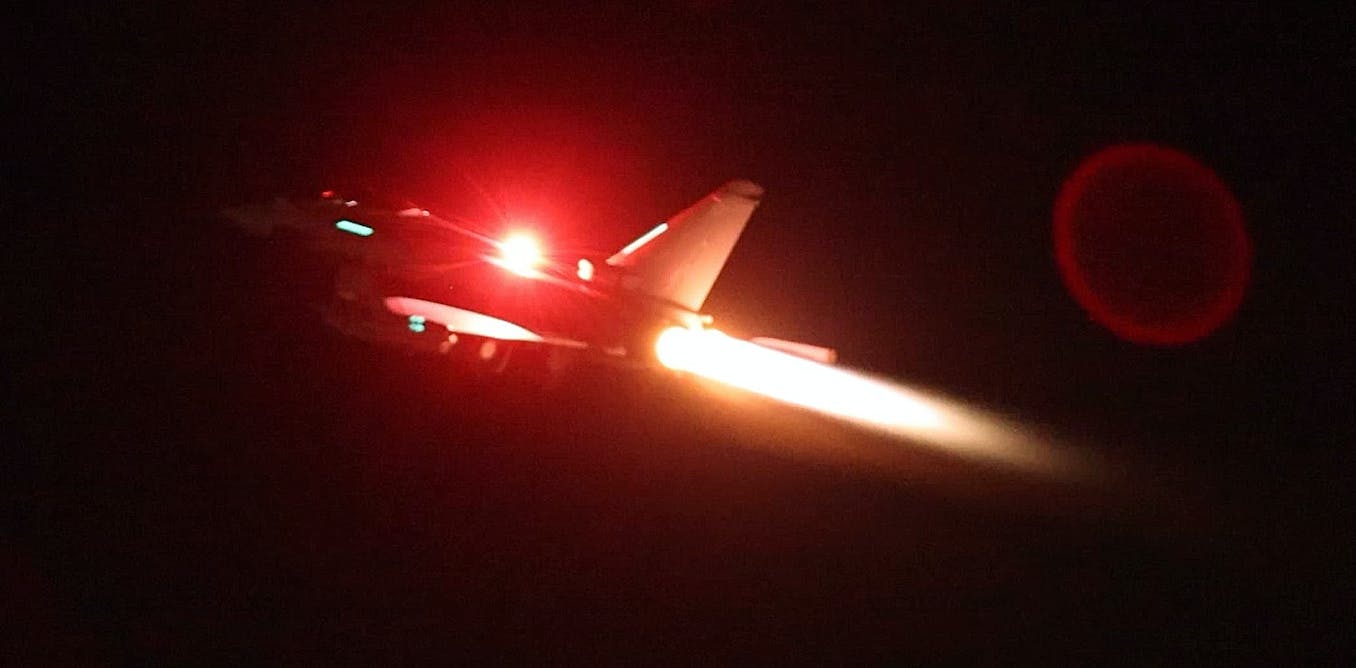Progressive Democrats in Congress have criticized President Joe Biden for conducting military operations in Yemen without seeking prior approval from Congress. They argue that Article I of the U.S. Constitution grants Congress the power to declare war and therefore requires the president to seek authorization. However, Biden, like previous presidents, believes that Article II allows him to use the military in certain situations without prior approval. Despite objections from Congress, presidents have historically been able to circumvent limitations on their military actions, citing vague concerns like national security or the need to prevent humanitarian disasters. The 1973 War Powers Resolution, intended to constrain presidential power, contains loopholes that presidents have exploited to act unilaterally. Even recent congressional resolutions have broadened executive control.
The historical precedent for executive authority over military operations dates back to the Pearl Harbor attack in 1941. Congress declared war on Japan following the attack, but afterward, it began allowing the president to take more control over the military. During the Cold War, Congress continued to relinquish its powers, and presidents like Harry Truman and Richard Nixon acted unilaterally despite congressional opposition. After the 9/11 attacks, Congress passed authorizations that gave the president significant power to use military force without congressional checks. In the two decades since, four presidents have used these authorizations to justify various military actions.
President Biden, while claiming to support the repeal of these authorizations and increased congressional oversight, has used their power to conduct military strikes in Somalia and defend U.S. forces in Syria. Recently, he extended his use of military power by conducting strikes against Iranian-backed militiamen in Iraq. These actions have caused tension with Congress, but they align with the long-standing U.S. tradition of targeting members of terrorist groups and protecting military personnel in conflict zones.
The U.S. military operations in Yemen go beyond punishing the Houthi militants. They involve confronting an Iranian-backed militant group, which poses the risk of conflict with a larger enemy that has the support of Russia and possibly China. The killing of Major General Qassim Soleimani by President Donald Trump in 2020 without congressional approval has heightened tensions with Iran. Iranian Supreme Leader Ali Hosseini Khamenei has vowed to seek revenge, and if the U.S. takes actions against the Houthis or supports Israel, Iran may see it as justification to respond more forcefully. Under the current legal structure, President Biden would have the authority to craft a response without congressional notification or approval.
Overall, presidents have consistently expanded their authority to conduct military operations without seeking congressional approval, and Congress has done little to restrict this power. The recent U.S. missile attacks in Yemen and the ongoing debate over presidential war powers highlight the need for a reevaluation of the balance of power between the executive and legislative branches in matters of war and military action.









